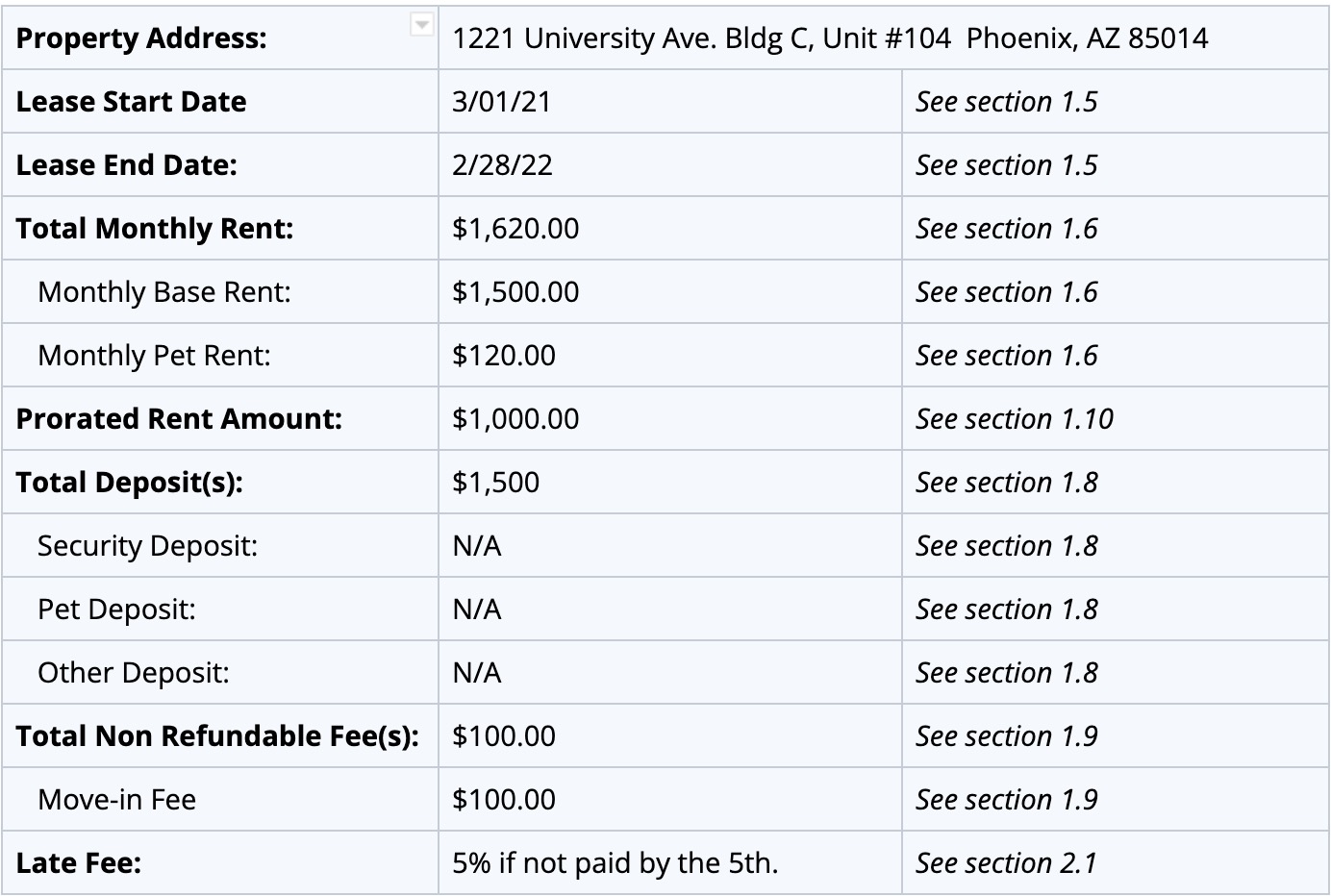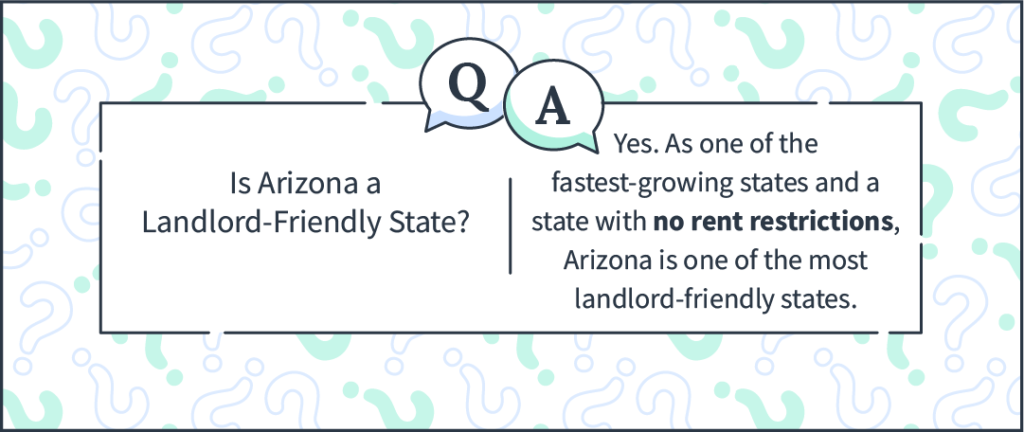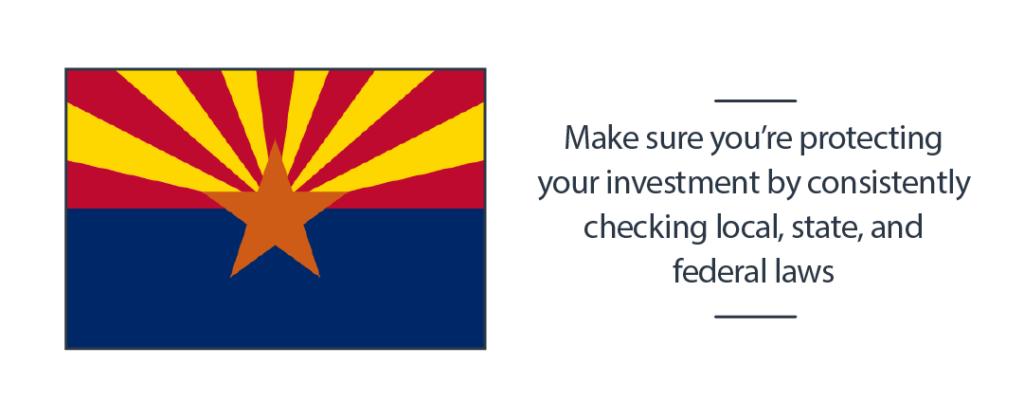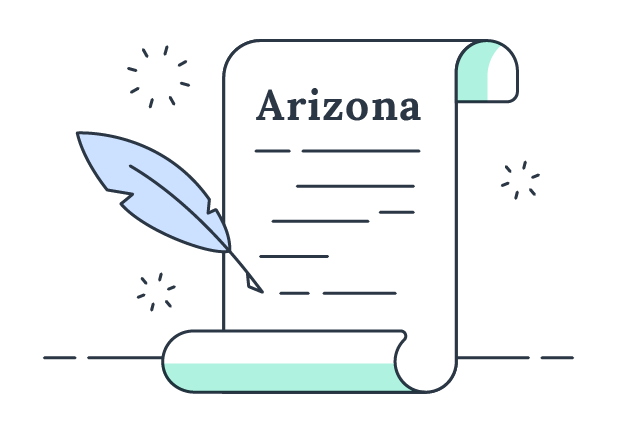Table of Contents
- About Arizona and Its Rental Market
- Arizona Voting Information
- Arizona Tenants’ Rights and Landlord Responsibilities
- Arizona Landlords’ Rights and Tenant Responsibilities
- Application Fees
- Criminal Background Checks
- Disclosures
- Arizona Lease Agreement
- Arizona Landlord-Tenant Law FAQ
- Due Diligence and Arizona Rental Laws
- Arizona Landlord-Tenant Law Resources
About Arizona and Its Rental Market
In 2020, Arizona was the second-fastest-growing state in the U.S. This comes as no surprise with Phoenix’s warm, inviting weather and the diverse landscapes you can find throughout the state. Arizona is an excellent place to invest in property because of the constant increase in population and the growing need for housing. As home to 22 national parks and monuments, a growing craft brewery scene, and some of the best restaurants in the nation, it’s no wonder Arizona is a great place to live and invest in property. For our recommendations on exactly where to invest in this state, take a look at our Arizona rental investment report.
Arizona Voting Information
Laws that impact the rental market, landlords, and tenants are constantly being decided in states. Make sure you know what’s on your ballot – find Arizona voting information here.

Arizona Tenants’ Rights and Landlord Responsibilities
- Return security deposit within 14 days
- No legal provisions for rental increases
- Must make repairs within 10 days
- Must give a 2-day notice before entering
Arizona Landlords’ Rights and Tenant Responsibilities
- A tenant may not withhold rent for any reason outside of the self-help repair statute
- A tenant has 10 days to claim abandoned property
- A tenant has 5 days to pay rent
- Tenants are responsible for maintaining the residence
- Withholding Rent – A tenant may only withhold rent if a landlord fails to make necessary repairs. Other than this, there are no legal reasons a tenant may withhold rent.
- Abandoned Property – If a tenant moves out and leaves personal property, the landlord must send them a written notice and store the property for ten days. After this time period, if the ex-tenant has not claimed it, the landlord may sell it or throw it away.
- Eviction Process – If a tenant fails to pay rent, the landlord must give them a written notice that they have five days to do so. After this period, the landlord may file for an eviction. If the tenant violates the lease, the landlord must give them ten days to fix the violation before they are able to file for an eviction.
- Maintaining Property – Tenants have a duty to keep the rental property maintained including complying with building codes, not destroying property, and properly using all appliances.
Application Fees
Arizona does not have any specific laws regarding application fees.
Criminal Background Checks
The State of Arizona has no added laws or restrictions around the collection of criminal background checks. Adherence to general federal law is required. To avoid the perception of discrimination, make sure your screening criteria is stated and is consistent and equal for all groups of people.
Disclosures
- Bed Bugs, including this information
- The Landlord-Tenant Act
- The purpose of any non-refundable fees
- Shared Utilities, including a breakdown of which utilities are shared and the payment arrangement (along with the formula for calculating who owes what)
- Pool Enclosure Disclosure, applicable for every property with pool, which must include this information
Build an Arizona lease agreement with all of the required disclosures in less than 15 minutes.
Arizona Lease Agreement
There are three sections to a residential lease agreement. The first section outlines the custom details of the contract, such as who’s involved and for what address. Here’s an example Arizona lease agreement listing details found in Section 1:
Arizona Landlord-Tenant Law FAQ
Below are brief answers for some of the most commonly-asked questions when it comes to landlord-tenant laws in Arizona:
Can You Withhold Rent in Arizona?
You can withhold rent only under the self-help repair statute if a landlord doesn’t perform repairs within ten days of being notified. A tenant cannot withhold rent under any other circumstances in Arizona.
How Long Does it Take to Evict a Tenant in Arizona?
A landlord must have a legal reason to terminate a lease. If a tenant fails to pay rent on time, the landlord must supply them with a written notice that gives them five days to pay. If they do not pay within those five days, then the landlord may file for an eviction. If the tenant fails to take proper care of the property, the landlord may give them a five day notice to fix the problem otherwise the landlord may file for an eviction. If the tenant breaks any other part of the lease, they are given ten days to remedy otherwise the landlord is able to file for an eviction.
Is Arizona a Landlord-Friendly State?
Yes. As one of the fastest-growing states and a state with no rent restrictions and other laws that favor landlords, Arizona is one of the most landlord-friendly states.
How Much Notice Does a Landlord Have to Give a Tenant to Move Out in Arizona?
For month-to-month renters, a landlord is required to give the tenant a 30-day notice of move out. If the lease is fixed, the landlord doesn’t have to give any notice.
Due Diligence and Arizona Rental Laws
TurboTenant has utilized many municipal sources along with official state statutes in order to compile this information to the best of our ability. However, local laws are always in flux and landlords and tenants alike should be sure to do their due diligence and consult legal help when it’s needed. We hope the following list can serve as a valuable resource and allow you to succeed as a landlord or tenant in Arizona. Be sure to take proper precautions when it comes to finding the top candidates for your unit by utilizing our online rental application and tenant screening services.
Disclaimer: TurboTenant, Inc does not provide legal advice. This material has been prepared for informational purposes only. All users are advised to check all applicable local, state, and federal laws and consult legal counsel should questions arise.
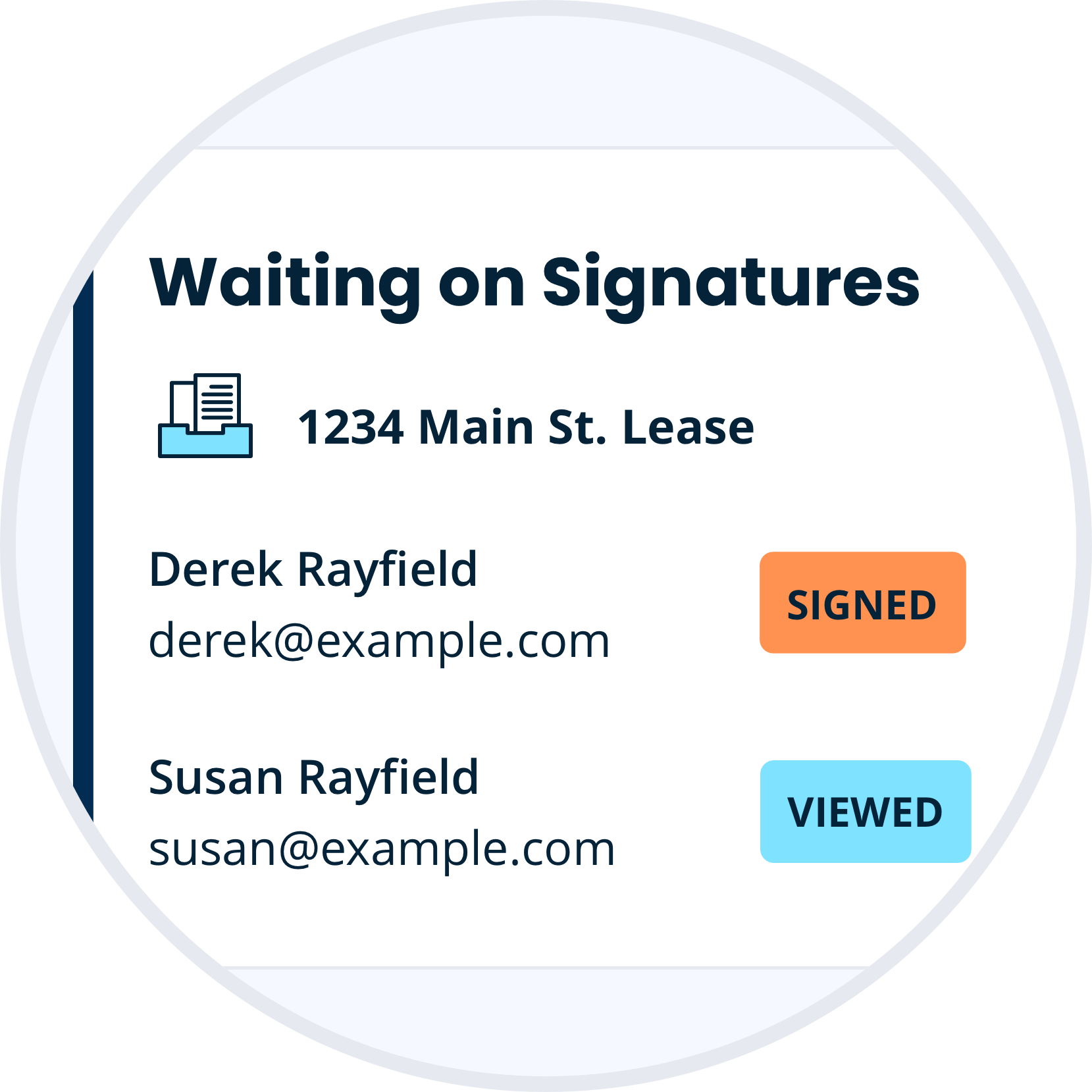
Unlimited Everything.
Create a single Arizona lease agreement, or subscribe and receive unlimited lease agreements, landlord forms pack, and e-signs for a simple annual fee. Be confident with all the legal forms and tools you need as a professional landlord.
Discover Our Unlimited PlanArizona Landlord-Tenant Law Resources
Arizona Fair Housing Resources
Arizona Associations
Arizona City-Specific Housing Resources
Phoenix
- Landlord-Tenant Program – City of Phoenix
- Fair Housing – City of Phoenix
- Tenant Information – City of Phoenix
- Housing Department – City of Phoenix
- Phoenix Association of REALTORS®
Tucson
Mesa
Chandler
- Fair Housing – City of Chandler
- Information for Landlords – City of Chandler
- SouthEast Valley Regional Association of REALTORS®
Glendale
Scottsdale
- Fair Housing, Landlord-Tenant Resources – City of Scottsdale
- Scottsdale Area Association of REALTORS®
Gilbert
- Fair Housing & Equal Opportunity – City of Gilbert
- SouthEast Valley Regional Association of REALTORS®
Tempe
- Fair Housing – City of Tempe
- Renting in Tempe – City of Tempe
- SouthEast Valley Regional Association of REALTORS®
Federal Fair Housing Resources




